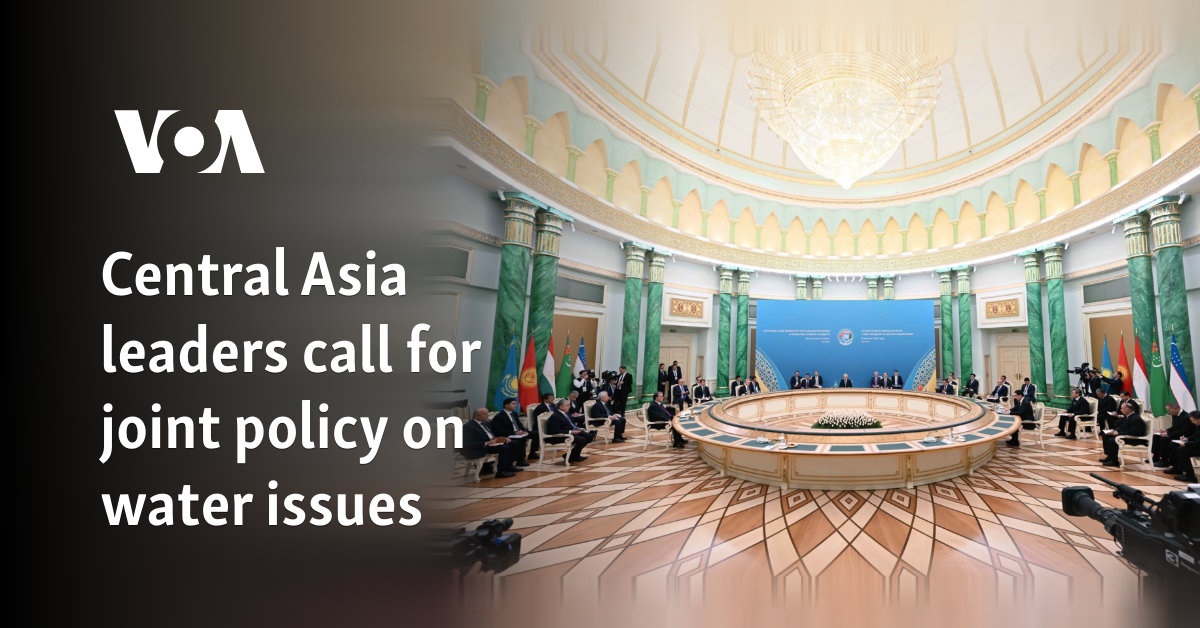
This article was originally published on VOA News - Science. You can read the original article HERE

Central Asian leaders met in Kazakhstan on Friday seeking to agree on a shared policy on water management in a region where the scarce resource causes frequent disputes.
Interruptions to water supplies are a regular occurrence in the five ex-Soviet Central Asian countries – Kazakhstan, Kyrgyzstan, Uzbekistan, Tajikistan and Turkmenistan – whose territory is 80% desert and steppe.
Hosting the summit, Kazakh President Kassym-Jomart Tokayev said it was "necessary to develop a new consolidated water policy, based on equal and fair use of water and strict fulfilment of obligations," the presidential website said.
The way water access is shared in the Central Asian states has remained the same since the Soviet era and is fraught with problems: those countries with more water exchange it in return for electricity from the more energy-rich countries.
Kyrgyzstan and Tajikistan, which have more water than the others, have often clashed over control of supplies.
Kyrgyz President Sadyr Japarov on Friday called for the creation of a "mutually economically beneficial mechanism for water and energy cooperation," taking into account "the limited amount of water resources and their importance for the whole region."
Uzbek President Shavkat Mirziyoyev emphasized the need to adopt a "regional strategy on the rational use of water resources of cross-border rivers."
The volume of water in the main Central Asian rivers, the Amu Darya and the Syr Darya, is expected to continue falling in the years to come, according to experts.
Shortages of water, along with global warming, is compounded by significant waste due to outdated infrastructure.
After three years of tensions, the Central Asian states are now trying to coordinate efforts in numerous areas, particularly water management, amid growing demand for agriculture and energy generation in a region with a population of about 80 million.
Another concern for the Central Asian governments is the construction by the Taliban of the Qosh Tepa Canal to irrigate northern Afghanistan, which could further threaten water supplies.
This article was originally published by VOA News - Science. We only curate news from sources that align with the core values of our intended conservative audience. If you like the news you read here we encourage you to utilize the original sources for even more great news and opinions you can trust!









Comments